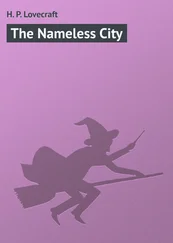Maurus Jokai - The Nameless Castle
Здесь есть возможность читать онлайн «Maurus Jokai - The Nameless Castle» весь текст электронной книги совершенно бесплатно (целиком полную версию без сокращений). В некоторых случаях можно слушать аудио, скачать через торрент в формате fb2 и присутствует краткое содержание. Город: New York, Год выпуска: 1898, Издательство: Doubleday, Page & Company, Жанр: Историческая проза, на английском языке. Описание произведения, (предисловие) а так же отзывы посетителей доступны на портале библиотеки ЛибКат.
- Название:The Nameless Castle
- Автор:
- Издательство:Doubleday, Page & Company
- Жанр:
- Год:1898
- Город:New York
- ISBN:нет данных
- Рейтинг книги:4 / 5. Голосов: 1
-
Избранное:Добавить в избранное
- Отзывы:
-
Ваша оценка:
- 80
- 1
- 2
- 3
- 4
- 5
The Nameless Castle: краткое содержание, описание и аннотация
Предлагаем к чтению аннотацию, описание, краткое содержание или предисловие (зависит от того, что написал сам автор книги «The Nameless Castle»). Если вы не нашли необходимую информацию о книге — напишите в комментариях, мы постараемся отыскать её.
The Nameless Castle — читать онлайн бесплатно полную книгу (весь текст) целиком
Ниже представлен текст книги, разбитый по страницам. Система сохранения места последней прочитанной страницы, позволяет с удобством читать онлайн бесплатно книгу «The Nameless Castle», без необходимости каждый раз заново искать на чём Вы остановились. Поставьте закладку, и сможете в любой момент перейти на страницу, на которой закончили чтение.
Интервал:
Закладка:
The entombed man must not quit his grave. He might only seat himself at the window of his tomb, and thence look out on the beautiful, forbidden world.
What a stately appearance the lady makes as she strolls in her long white gown across the green sward over yonder! Her long golden hair falls in glittering masses from beneath her wide-rimmed straw hat. Now she stops; she seems to be looking for some one. Now her lips open; she is calling some one. Her form is quite near, but her voice stops over yonder, a thousand paces distant. The person she calls does not appear in the field of vision. Now she calls louder, and the listening ear hears the words, “Dear Ludwig!”
He starts. These words have not come from the phantom of the object-glass, but from a living being that stands by his side—Marie.
The count sprang to his feet, surprised and embarrassed, unable to say a word. Marie, however, did not wait for him to speak, but said with eager inquisitiveness:
“What are you looking at through that great pipe?”
Before Ludwig could turn the glass in another direction, the little maid had taken his seat, and was gazing, with a wilful smile on her lips, through the “great pipe.”
The smile gradually faded from her lips as she viewed the world revealed by the telescope—the beautiful woman over yonder amid her flowers, her form encircled by the nimbus of rainbow hues.
When she withdrew her eye from the glass, her face betrayed the new emotion which had taken possession of her. The lengthened features, the half-opened lips, the contracted brows, the half-closed eyes, all these betrayed—Ludwig was perfectly familiar with the expression—jealousy.
Marie had discovered that there was an enchantingly beautiful woman upon whose phenomenal charms her Ludwig came up here to feast his eyes. The faithless one!
Ludwig was going to speak, but Marie laid her hand against his lips, and turned again to the telescope. The “green-eyed monster” wanted to see some more!
Suddenly her face brightened; a joyful smile wreathed her lips. She seized Ludwig’s hand, and exclaimed, in a voice that sounded like a sigh of relief:
“What you told me was true, after all! You did not want to deceive me.”
“What do you see?” asked Ludwig.
“I see the water-monster that frightened me. I believed that you invented a fable and had it printed in that book in order to deceive me. And now I see the creature over yonder with the beautiful lady. She called to him, and he came walking on his hands and feet. Now he is standing upright. How ridiculous the poor thing looks in his red clothes! He doesn’t want to keep on his hat, and persists in wanting to walk on all fours like a poodle. Dear heaven! what a kind lady she must be to have so much patience with him!”
Then she rose suddenly from the telescope, flung her arms around Ludwig’s neck, and began to sob. Her warm tears moistened the young man’s face; but they were not tears of grief.
Very soon she ceased sobbing, and smiled through her tears.
“I am so thankful I came up here! You will let me come again, won’t you, Ludwig? I will come only when you ask me. And tomorrow we will resume our swimming excursions. You will come with me in the canoe, won’t you?”
Ludwig assented, and the child skipped, humming cheerily, down the tower stairs; and the whole day long the old castle echoed with her merry singing.
CHAPTER III
And why should not Baroness Landsknechtsschild take observations with a telescope, as well as her neighbor at the Nameless Castle?
She could very easily do so unnoticed. From the outside of a house, when it is light, one cannot see what is going on in a dark room.
This question Count Vavel was given an opportunity to decide.
The astronomical calendar had announced a total eclipse of the moon on a certain night in July. The moon would enter the shadow at ten o’clock, and reach full obscuration toward midnight.
Ludwig had persuaded Marie to observe the phenomenon with him; and the young girl was astonished beyond measure when she beheld for the first time the full moon through the telescope.
Ludwig explained to her that the large, brilliant circles were extinct craters; the dark blotches, seas. At that time scientists still accepted the theory of oceans on the moon. What interested Marie most of all, however, was the question, “Were there people on the moon?” Ludwig promised to procure for her the fanciful descriptions of a supposed journey made to the moon by some naturalists in the preceding century. Innocent enough reading for a girl of sixteen!
“I wonder what the people are like who live on the moon?”
And Ludwig’s mental reply was: “One of them stands here by your side!”
After a while Marie wearied of the heavenly phenomena, and when the hour came at which she usually went to bed she was overcome by sleep.
In vain Ludwig sought to keep her awake by telling her about the Imbrian Ocean, and relating the wonders of Mount Aristarchus. Marie could not keep from nodding, and several times she caught herself dreaming.
“I shall not wait to see the end of the eclipse,” she said to Ludwig. “It is very pretty and interesting, but I am sleepy.”
She was yet so much a child that she would not have given up her sweet slumbers for an eclipse of all the planets of the universe.
Ludwig accompanied her to the door of her apartments, bade her good night, and returned to the observatory.
Already the disk of the moon was half obscured. Ludwig removed the astronomical eye-piece from the telescope, and inserted the tellurian glass instead; then he turned the object-glass toward the neighboring manor instead of toward the moon. Now, if ever, was the time to find out if his fair neighbor possessed a telescope. If she had one, she would certainly be using it now.
It was sufficiently light to enable him to see quite distinctly the baroness sitting, with two other women, on the veranda. She was observing the eclipse, but with an opera-glass—a magnifier that certainly could not reveal very much.
Of this Count Ludwig might rest satisfied. And yet, in spite of the satisfaction this decision had given him, he continued to observe the disappearance of the moonlight from the veranda of the manor with far more attention than he bestowed upon the gradual darkening of the heavenly luminary itself. Then there happened to the baroness’s companions what had happened to Marie: the women began to nod, whereupon the baroness sent them to bed. There remained now only the count and his fair neighbor to continue the astronomical observations. The lady looked at the moon; the count looked at the lady.
The baroness, as was evident, was thorough in whatever she undertook. She waited for the full obscuration—until the last vestige of moonlight had vanished, and only a strange-looking, dull, copper-hued ball hung in the sky.
The baroness now rose and went into the house. The astronomer on the castle tower observed that she neglected to close the veranda door.
It was now quite dark; the silence of midnight reigned over everything.
Count Vavel waited in his observatory until the moon emerged from shadow.
Instead of the moon, something quite different came within the field of vision.
From the shrubbery in the rear of the manor there emerged a man. He looked cautiously about him, then signaled backward with his hand, whereupon a second man, then a third and a fourth, appeared.
Dark as it was, the count could distinguish that the men wore masks, and carried hatchets in their hands. He could not see what sort of clothes they wore.
They were robbers.
One of the men swung himself over the iron trellis of the veranda; his companions waited below, in the shadow of the gate.
Читать дальшеИнтервал:
Закладка:
Похожие книги на «The Nameless Castle»
Представляем Вашему вниманию похожие книги на «The Nameless Castle» списком для выбора. Мы отобрали схожую по названию и смыслу литературу в надежде предоставить читателям больше вариантов отыскать новые, интересные, ещё непрочитанные произведения.
Обсуждение, отзывы о книге «The Nameless Castle» и просто собственные мнения читателей. Оставьте ваши комментарии, напишите, что Вы думаете о произведении, его смысле или главных героях. Укажите что конкретно понравилось, а что нет, и почему Вы так считаете.












